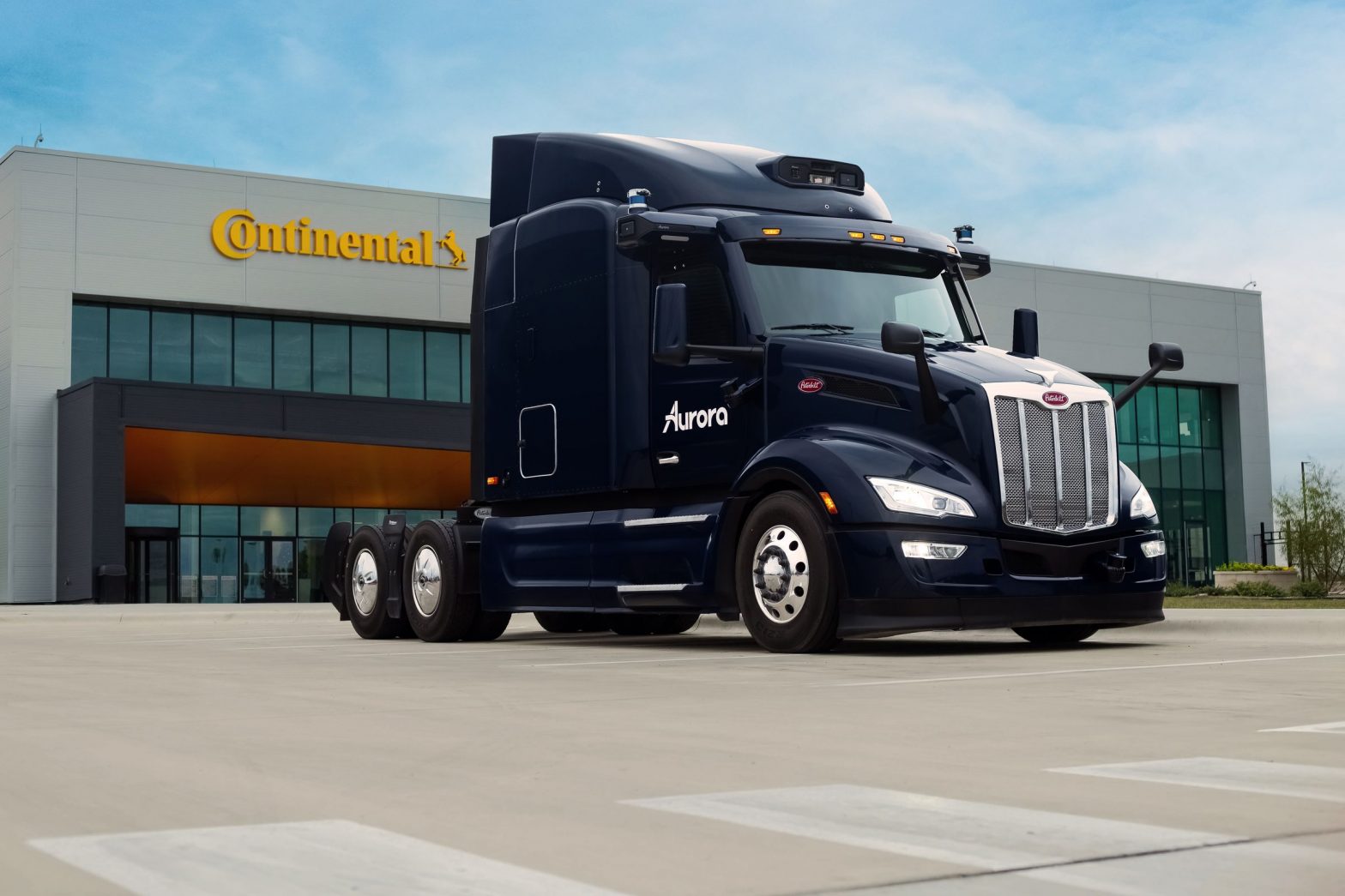/
The company aims to deploy a dozen or so trucks this year, with an eye toward having thousands on the road in 2027.
Share this story
:format(webp)/cdn.vox-cdn.com/uploads/chorus_asset/file/25204283/Hero_image___JPG.jpg)
Autonomous vehicle company Aurora Innovation announced the finalization of the design, architecture, and hardware for its Aurora Driver. The technology will power its future lineup of driverless semi trucks that it’s producing with German auto supplier Continental starting in 2027.
Aurora says it still plans on deploying a handful of fully driverless trucks by the end of 2024. But having reached the milestone of finalizing the design of its self-driving hardware and software stack, the company says it’s poised to deploy “thousands” of trucks in just three years.
Aurora — which was founded in 2017 by alumni of Uber, Tesla, and Waymo — has said it plans to deploy 20 fully autonomous trucks this year, with an eye on expanding to about 100 trucks in 2025 and eventually selling to other companies.
The company first announced a joint venture with Continental in April 2023, in which Aurora said the partnership will allow it to scale its manufacturing plans in a much more meaningful way. The company also has deals in place with Volvo and Paccar to use its self-driving technology in those companies’ trucks.
Autonomous trucks were once thought to precede robotaxis and personally owned autonomous vehicles in mass adoption but have run into similar obstacles as those other vehicle types along the way. Some companies have gone out of business, while others have cut plans to deploy driverless trucks as timelines have stretched into the future and funding has dried up.
Moreover, public opinion toward autonomous vehicles has trended downward, thanks in part to missteps of companies like Tesla and Cruise, the latter of which was forced to pause operations nationwide after a pedestrian was hurt by one of its vehicles.
But Aurora is hoping that a measured, conservative approach to commercialization will make its trucks look more practical by comparison. The company plans to spend the rest of the year and next building and testing prototype versions of its tech with Continental for testing at its facility in New Braunfels, Texas.
Meanwhile, Continental will “industrialize and validate” Aurora’s technology, as well as its fallback system, before it starts production at its facilities. A fallback system is in place to help guide the truck in case of sensor or other hardware failures.
Aurora also plans on using several of Continental’s components for its Driver, including “sensors, automated driving control units, high-performance computers, telematics units, and more.” And the companies will work together to develop a “service playbook” for customers who purchase Aurora’s trucks.
